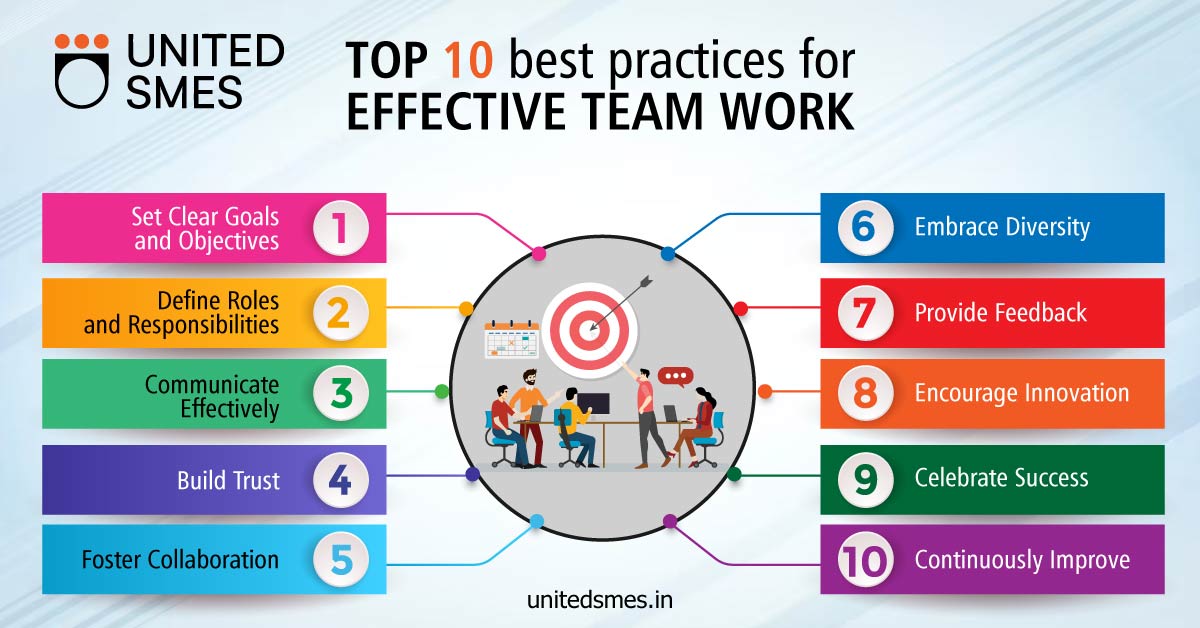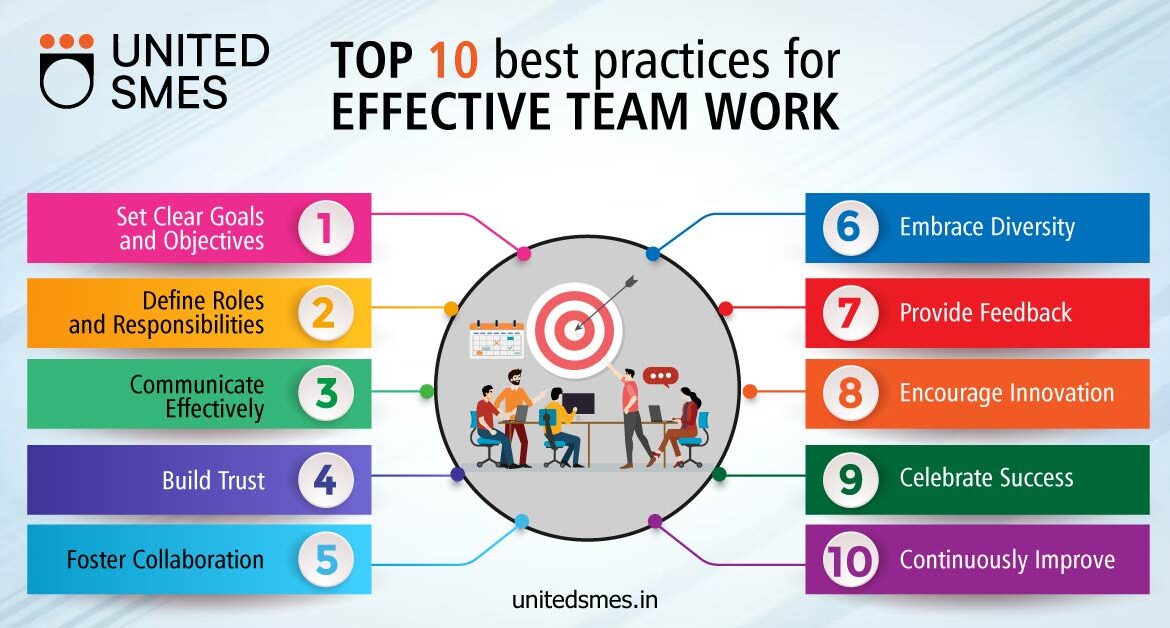
Top 10 best practices for effective team work
Effective teamwork is crucial for the success of any organization. A team that works together cohesively is more likely to achieve its goals and objectives than a group of individuals working independently. Here are ten best practices for effective teamwork:
Set Clear Goals and Objectives
The first step to effective teamwork is to establish clear goals and objectives for the team. This will help everyone to focus their efforts and work towards a common purpose. It’s important to ensure that these goals are measurable, achievable, and relevant to the organization’s overall strategy.
Define Roles and Responsibilities
Once the team’s goals and objectives are established, it’s important to define each team member’s role and responsibilities. This will help to avoid confusion and duplication of effort. Each team member should have a clear understanding of their role and how it contributes to the team’s success.
Communicate Effectively
Effective communication is essential for successful teamwork. This includes not only sharing information but also listening actively to others. Regular team meetings and updates can help to keep everyone on the same page and ensure that everyone is working towards the same goals.
Build Trust
Trust is a fundamental aspect of effective teamwork. Team members must trust each other to do their jobs well and to support each other when needed. Building trust takes time and effort, but it’s essential for creating a strong and cohesive team.
Foster Collaboration
Collaboration is another key aspect of effective teamwork. Encouraging team members to work together, share ideas, and support each other can help to create a culture of collaboration. This can lead to better decision-making, increased productivity, and improved outcomes.
Embrace Diversity
Diversity is a strength in effective teamwork. Teams that are diverse in terms of skills, backgrounds, and perspectives can bring fresh ideas and approaches to problem-solving. Embracing diversity also means being respectful of differences and valuing each team member’s contribution.
Provide Feedback
Regular feedback is essential for improving team performance. This includes both positive feedback to reinforce good performance and constructive feedback to address areas for improvement. Feedback should be specific, timely, and focused on behaviors rather than personalities.
Encourage Innovation
Encouraging innovation is another way to foster effective teamwork. By giving team members the freedom to explore new ideas and approaches, they can come up with innovative solutions to problems. This can help to improve processes, products, and services.
Celebrate Success
Celebrating success is important for boosting team morale and motivation. Recognizing individual and team achievements can help to build a sense of pride and accomplishment. Celebrating success can also help to reinforce the team’s goals and objectives.
Continuously Improve
Effective teamwork requires continuous improvement. Teams should regularly evaluate their performance, identify areas for improvement, and take action to address them. By constantly striving to improve, teams can achieve better outcomes and reach their full potential.
In conclusion, effective teamwork is critical for the success of any organization. By following these best practices, teams can work together cohesively and achieve their goals and objectives. Setting clear goals and objectives, defining roles and responsibilities, communicating effectively, building trust, fostering collaboration, embracing diversity, providing feedback, encouraging innovation, celebrating success, and continuously improving are all essential aspects of effective teamwork.






